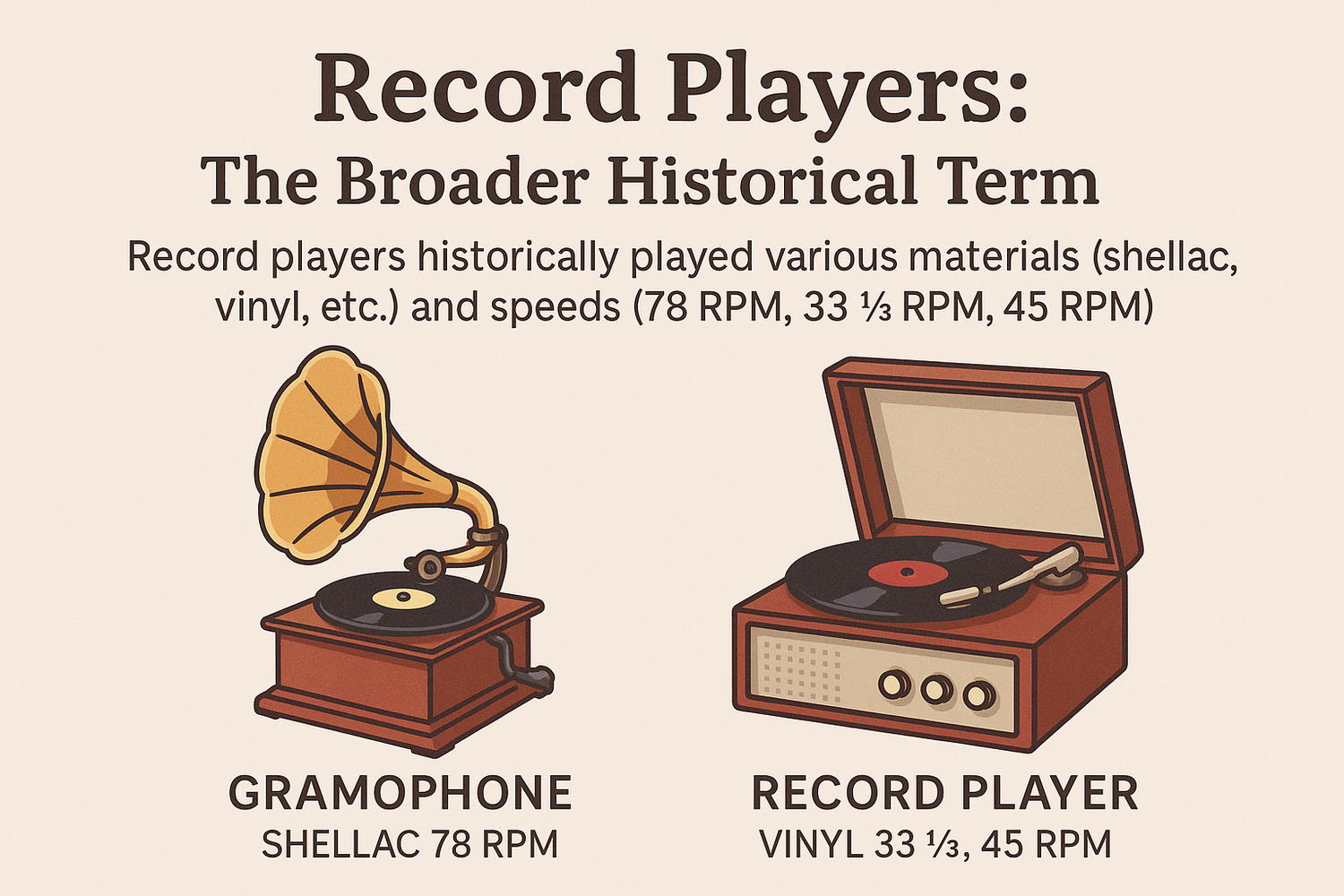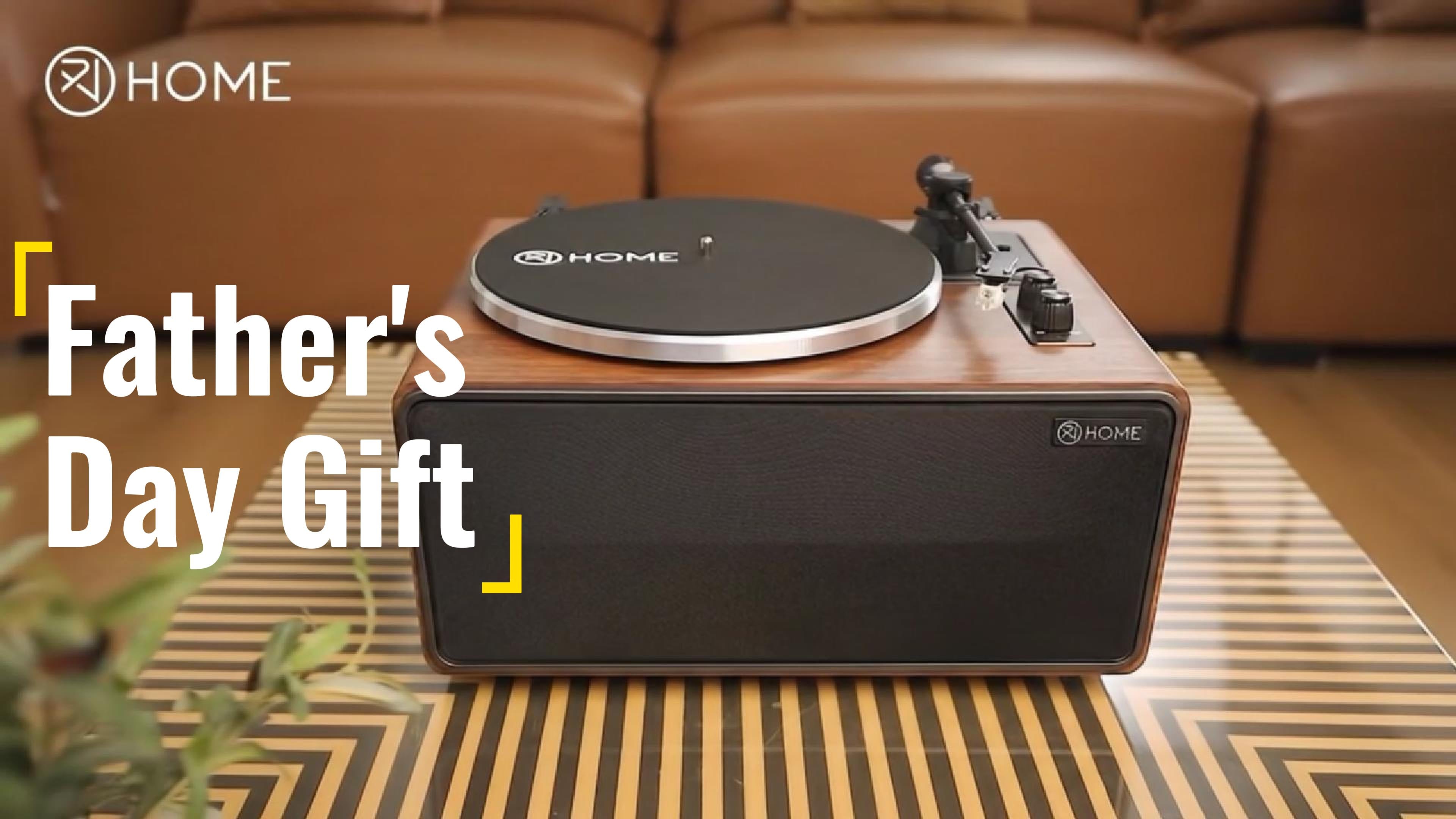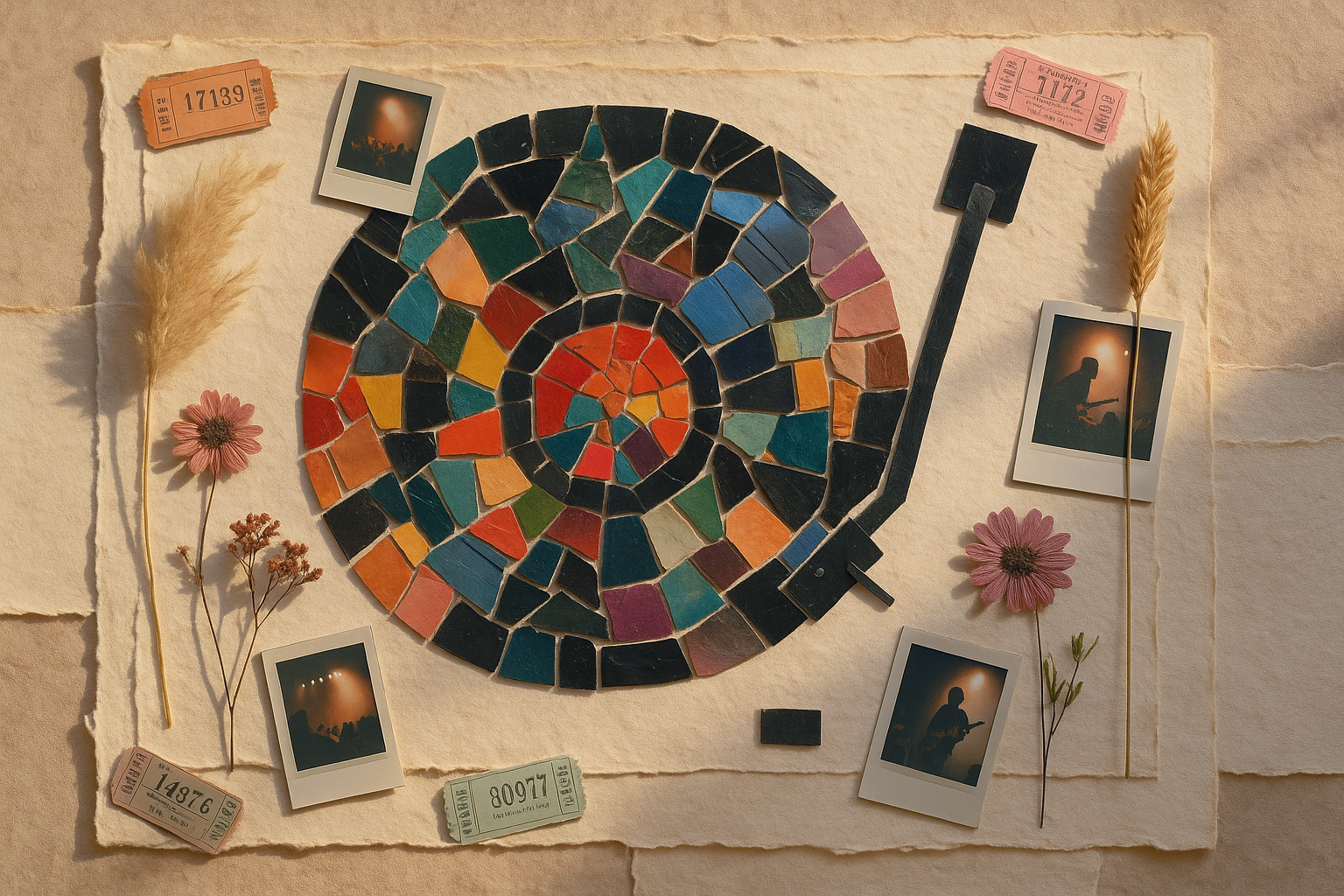Another Father's Day approaches, bringing with it the annual challenge of finding a gift that transcends utility. We can always buy another tie, another power tool, another bottle of single malt. These are fine gifts, but they are objects. They perform a function. They are rarely transformative.
But what if you could give him something more? What if you could give him a machine that manipulates time itself?
This isn't science fiction. The machine is a turntable, and its function is far deeper than simply playing music. In a world of fleeting digital streams and fractured attention, the act of playing a vinyl record is a powerful rebellion. It's a device that reconnects a man to the physics of his own memory, the value of his attention, and the architecture of his own identity. It is, for all intents and purposes, a time machine. And it might just be the most meaningful gift you'll ever give.
Principle 1: The Physics of Memory is Physical
The first and most crucial principle to understand is that human memory is not a digital file. It’s a messy, associative, and deeply physical process. We romanticize the "warm, analog sound" of vinyl, but this misses the point. The magic isn't just in the sound; it's in the physicality.
A song on a streaming service is an abstraction—data pulled from a distant server, weightless and formless. An album on vinyl is a tangible object. It has weight, dimension, and presence. There is the resistance of the shrink-wrap, the faint smell of cardboard and ink, the sheer real estate of the 12x12 album art that demands to be seen and held. These are not features to be nostalgically admired; they are data points for the soul.
The ritual is the key. You don’t just "click." You select, you remove, you clean, you place. You lower a needle into a groove and witness a physical process creating sound. This ritual is a form of forced mindfulness. For three or four minutes, while a 45 RPM single plays, or for the twenty-plus minutes of a full LP side, you are tethered to the present moment. Your attention is required.

This physical engagement is what triggers a deeper form of recall. The brain doesn’t just remember the song; it remembers the feeling of the album in its hands, the place it was first heard, the person who was there. The "inconvenience" of vinyl isn't a bug; it's the entire point. It's a deliberate act of engagement in an era of passive consumption, and it’s this engagement that unlocks the door to a more vivid past.
Principle 2: The Economics of Attention is Scarcity
We live in an age of manufactured infinity. Streaming services offer us 100 million songs, a paradox of choice that induces a subtle anxiety and leads to overwhelmingly shallow listening. We skip, we shuffle, we add to playlists we’ll never hear, we treat music as auditory wallpaper.
A turntable is the antidote. It operates on the principle of scarcity. You cannot easily skip a track. You are committed to the artist's vision for an entire album side. This limitation is a gift. It restores the album as a narrative art form, a complete statement with an intended emotional arc. Suddenly, the deep cuts—the forgotten third track on side B that never made the radio—reveal their genius. The listening experience shifts from a fleeting survey to a deep, immersive conversation.
This scarcity of choice elevates the value of our attention. By forcing us to commit, the turntable teaches us to listen again, not just hear. It’s a direct counter-programming to the modern condition of endless, meaningless choice. It reminds us that the most valuable things—in music, and in relationships—are those we give our undivided attention to. Giving a turntable is giving the gift of focus, a resource more precious than any other in the 21st century.
Principle 3: The Architecture of Identity is a Shelf
Look at a man’s digital library, and you see nothing. It’s a list of file names in a cloud, as personal as a bank statement and just as ethereal.
Now, look at a man’s record shelf. You are looking at the architecture of his life.
Each spine is a chapter. That worn copy of Led Zeppelin IV isn't just an album; it’s the rebellion of his teenage years. The pristine pressing of Kind of Blue is the sound of his first sophisticated apartment. The James Taylor record is what he played to calm you down when you were a baby. A record collection is a tangible autobiography, a physical timeline of one's own evolving taste, passion, and history.
Unlike a digital account that vanishes with a forgotten password, a record collection is a legacy. It is a physical archive that can be explored, shared, and passed down. It says, "This is what mattered to me. This is what shaped me. This is my story, etched in vinyl."
To be sure, this is a hobby that can have a high barrier to entry. The gear can be expensive and the quest for original pressings can become an obsession. But it doesn't have to be. Excellent, accessible turntables are readily available from dedicated audio companies like Xenonjade.com, and the joy of digging through crates at a local record store to find a $5 gem is a core part of the experience. The gift isn't about snobbery or audiophile perfectionism; it's about starting the process of building that physical legacy. When you give him a record—perhaps one that’s meaningful to both of you—you are adding a new, shared chapter to his physical history.
The Ultimate Gift: Shared Time
In the end, the debate over analog versus digital sound quality is a red herring. A turntable is not about achieving a "better" sound; it's about facilitating a better, more meaningful experience.
It's a machine that slows down time, demands focus, and makes memory a physical thing you can hold in your hands. It gives a father a tool to reconnect not just with the music of his past, but with the man he was when he first heard it. More importantly, it gives him a tangible way to share that man, and those stories, with you.
You aren't just giving him a record player. You are giving him a conversation starter. A storyteller. A tangible link to his own history. You are giving him the gift of time.





Leave a comment
All comments are moderated before being published.
This site is protected by hCaptcha and the hCaptcha Privacy Policy and Terms of Service apply.